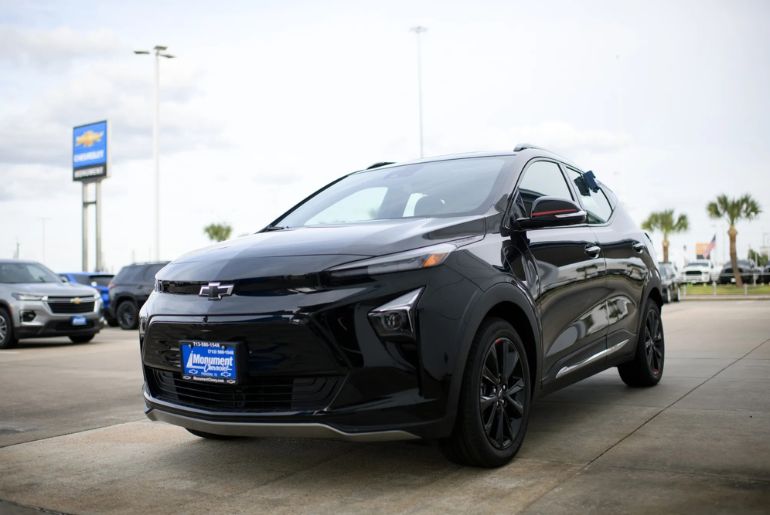GM reportedly plans to continue using foreign CATL batteries for about two years. Until GM and its South Korean partner, LG Energy Solution, start producing LFP cells domestically, this agreement will stay in effect. In mid-July, GM declared that Ultium Cells, the joint venture, would convert its battery cell plant in Spring Hill, Tennessee, which didn’t start producing until 2024, to produce LFP cells. The conversion is expected to commence this year, and by the end of 2027, commercial production will begin.
As the company’s most economical electric vehicle, the new Chevrolet Bolt with LFP batteries will begin rolling off the assembly line at GM’s Fairfax factory in Kansas at the end of this year and is anticipated to hit dealerships in 2026. The model, which has been hinted at but not yet made public, is the second iteration of the 2016 US bestseller. From 2016 to 2023, the first generation was sold.
From the $35,000 Chevrolet Equinox EV to the $340,000 Cadillac Celestiq, GM highlights that all twelve of its current electric vehicles are equipped with batteries manufactured in the United States. In keeping with GM’s initial modular battery design, which depended only on nickel-rich cells, these chemistries are nickel-based.
The automaker has changed its approach under former Tesla CEO Kurt Kelty, who joined GM in 2024 to oversee battery research. The Chevrolet Bolt, Equinox, Blazer, and Silverado EV are among the mid-range cars that will soon use LFP batteries. A June article in The Korea Economic Daily states that Samsung SDI will also adapt a portion of its Indiana joint venture with GM, which was originally only meant for nickel-rich batteries, to make room for LFP production lines.
Purchasing LFP batteries from China until US manufacturing starts will have a financial impact on the next Chevrolet Bolt. The study states that charges on imported car parts are included in the approximately 80% total tariffs currently applied to Chinese electric vehicle batteries. In fact, GM will benefit from the expiration of the $7,500 federal tax credit on September 30. The Bolt with CATL batteries will no longer be at a disadvantage when compared to EVs that receive subsidies because it is not eligible for the credit.

